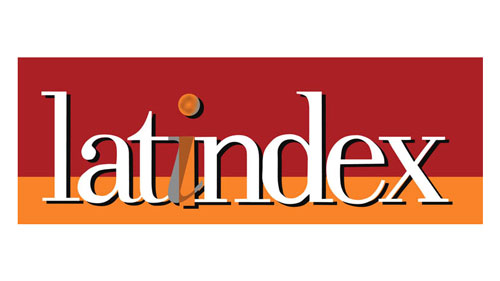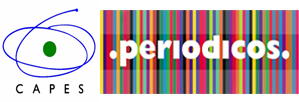A learning-service and ethics experience between translation students and children and teenagers in social vulnerability
DOI:
https://doi.org/10.26512/rhla.v20i2.38146Keywords:
Translation, Applied Linguistics, reflection in action, higher education, teaching ethicsAbstract
Framed in the Postgraduate research project «Ethics in the training of language teachers», this Service-Learning experience narrates the university extension project, aimed at children and adolescents in situations of social vulnerability and carried out by ten Translation students from Brasilia University in 2015-2016. Its objectives were to promote social work, teaching practice for university students and to develop a professional conscience and ethics. They did that by teaching instrumental Spanish courses. Articulated in the observation and prior and subsequent reflection, the research has mixed design, analysis of cases and open questionnaires to know the beliefs, expectations, and opinions of the students. As a result, academic performance improved, and theoretical concepts were consolidated. Personally, social and communication skills were perfected. In the professional aspect, qualities and competencies for teaching were acquired. Finally, in the social sphere, there was greater awareness of inequalities.
Articulated in the observation and prior and subsequent reflection, the research has mixed design, analysis of cases and open questionnaires to know the beliefs, expectations, and opinions of the students.
As a result, academic performance improved, and theoretical concepts were consolidated. Personally, social and communication skills were perfected. In the professional aspect, qualities and competencies for teaching were acquired. Finally, in the social sphere, there was greater awareness of inequalities.
Downloads
References
AGUILERA-JIMÉNEZ, A.; GÓMEZ DEL CASTILLO, M. T. Propiedades psicométricas del Cuestionario de Satisfacción del Voluntariado Universitario en Comunidades de Aprendizaje. 2014. Disponible en: http://personal.us.es/aguijim/11_06_Propiedades_Psicometricas_SAVU_Articulo_completo.pdf
BATES, A. K.; DRITS, D.; ALLEN, C.; MCCANDLESS, P. Service learning as an instructional strategy for the preparation of teachers. The Journal of Effective Teaching, v. 9, p 5-23, 2009. Disponible en: https://files.eric.ed.gov/fulltext/EJ1092201.pdf.
CONWAY, J. M.; AMEL, E. L.; GERWIEN, D. P. Teaching and learning in the social context: a metaanalysis of service learning’s effects on academic, personal, social, and citizenship outcomes. Teaching of Psychology, v. 36, p. 233-245, 2009. Disponible en: https://journals.sagepub.com/doi/pdf/10.1080/00986280903172969.
DUMAS, C. Community-based service learning: does it have a role in management education? International Journal of Value-Based Management, v. 15, p. 249-264, 2002. Disponible en: https://link.springer.com/article/10.1023/A:1020198225165. doi: 10.1023/A:1020198225165
FINK, L.D. Creating significant learning experiences: an integrated approach to designing college courses. Hoboken, N. J.: Jossey-Bass, 2003.
FOLGUEIRAS, P.; LUNA, E.; PUIG, G. Aprendizaje y servicio: estudio del grado de satisfacción de estudiantes universitarios. Revista de Educación, v. 362, p. 159-185, 2013. DOI:10.4438/1988-592X-RE-2011362-157.
FURCO, A. Impacto de los proyectos de aprendizaje-servicio, en Programa Nacional Educación Solidaria. Unidad de Programas Especiales Ministerio de Educación, Ciencia y Tecnología: aprendizaje y servicio solidario en la Educación Superior y en los sistemas educativos latinoamericanos. Actas del 7º Seminario Internacional Aprendizaje y Servicio Solidario. República Argentina, p. 19-26, 2005. DOI: 10.3200/CTCH.56.4.247-254.
GONZÁLEZ, C. Estilos de aprendizaje: investigaciones y experiencias. In: V CONGRESO MUNDIAL DE ESTILOS DE APRENDIZAJE. Actas…, Santander, 2012.
KOLB, D. Experiential learning: experience as the source of learning and development. Englewood Cliffs: Prentice Hall, 1984.
LEVESQUE-BRISTOL, C.; KNAPP, T. D.; FISHER, B. J. The effectiveness of service-learning: It’s not always what you think. Journal of Experiential Education, v. 33, n. 3, p. 208-224, 2010. DOI: 10.1177/105382590113300302.
MAHASNEH, R.; TAWALBEH, A.; AL-SMADI, R.; GHAITH, S.; DAJANI, R. Integrating service learning in Jordanian higher education. Innovations in Education and Teaching International, v. 49, n. 4, p. 415-425, 2012. DOI:10.1080/14703297.2012.728874.
MURPHY, T. Conversations on engaged pedagogies, independent thinking skills and active citizenship. Educational Research, v. 20, n. 1, p. 39-46, 2010. Disponible en: https://citeseerx.ist.psu.edu/viewdoc/download?doi=10.1.1.603.7484&rep=rep1&type=pdf.
NOVAK, J. M.; MARKEY, V.; ALLEN, M. Evaluating cognitive outcomes of service learning in higher education: a meta-analysis. Communication Research Reports, v. 24, n. 2, p. 149-157, 2007. DOI: 10.1080/08824090701304881.
PUIG, J.M.; GIJÓN, M.; MARTÍN, X.; RUBIO, L. Aprendizaje servicio y educación para la ciudadanía. Revista de Educación, número extraordinario 2011, p. 45-67, 2011. Disponible en: http://www.educacionyfp.gob.es/dam/jcr:240fb305-454b-4f53-93e3-9bf0932ef5e5/re201103-pdf.pdf.
RODRÍGUEZ-GALLEGO, M. R. El aprendizaje-servicio como estrategia metodológica en la Universidad. Revista Complutense de Educación, v. 25, n. 1, p. 95-113, 2014. DOI: 10.5209/revRCED.2014.v25.n1.41157.
RODRÍGUEZ-GALLEGO, M. R.; ORDÓÑEZ-SIERRA, R. Una experiencia de aprendizaje-servicio en comunidades de aprendizaje. Profesorado: Revista de Currículum y Formación de Profesorado, v. 19, n. 1, p. 314-333, 2015. Disponible en: https://www.redalyc.org/pdf/567/56738729015.pdf.
ROOT, S.; CALLAHAN, J.; SEPANSKI, J. Building teaching dispositions and service learning practice: a multi-site study. Michigan Journal of Community Service-Learning, v. 8, p. 50-60, 2002. Disponible en: http://hdl.handle.net/2027/spo.3239521.0008.205.
SCOTT, J. B. The practice of usability: teaching user engagement through service learning. Technical Communication Quarterly, v. 17, n. 4, p. 381-412, 2008. DOI: 10.1080/10572250802324929.
SHRADER, E.; SAUNDERS, M.; MARULLO, S.; BENATTI, S.; WEIGERT, K. Institutionalizing community-based learning and research: the case for external networks. Michigan Journal of Community Service Learning, v. 14, n. 2, p. 27-40, 2008. Disponible en: http://hdl.handle.net/2027/spo.3239521.0014.203.
STRAND, K.; MARULLO, S.; CUTFORTH, N.; STOECKER, R.; DONOHUE, P. Community based research and higher education: principles and practices. San Francisco, CA: Jossey-Bass, 2003.
STRAUSS, A.; CORBIN, J. Bases de la investigación cualitativa. Colombia: Ed. Univ. Antioquía, 2002.
SWORDS, A. C.; KIELY, R. Beyond pedagogy: service learning as movement building in higher education. Journal of Community Practice, v. 18, n. 2-3, p. 148-170, 2010. DOI:10.1080/10705422.2010.487253.
VÉLEZ MUÑOZ DE BUSTILLO, M. M. Reciclando-nos: un proyecto de aprendizaje y servicio en educación infantil. Trabajo Fin de Grado, 2014. Disponible en: http://rodin.uca.es/xmlui/bitstream/handle/10498/16626/16626.pdf.
VERJEE, B. Service-learning: charity-based or transformative?. Transformative Dialogues: Teaching and Learning Journal, v. 4, n. 2, p. 1-13, 2010. Disponible en: https://www.kpu.ca/sites/default/files/Teaching%20and%20Learning/TD.4.2.2_Vergee_Service_Learning.pdf.
Downloads
Published
How to Cite
Issue
Section
License
Copyright (c) 2021 Revista Horizontes de Linguistica Aplicada

This work is licensed under a Creative Commons Attribution-NonCommercial-NoDerivatives 4.0 International License.

A Revista Horizontes de Linguística Aplicada de http://seer.bce.unb.br/index.php/horizontesla/index é licenciado sob uma Licença Creative Commons Atribuição-Uso não-comercial-Vedada a criação de obras derivadas 3.0 Unported.
- Autores mantém os direitos autorais e concedem à revista o direito de primeira publicação, sendo o trabalho simultaneamente licenciado sob a Creative Commons Attribution License o que permite o compartilhamento do trabalho com reconhecimento da autoria do trabalho e publicação inicial nesta revista.
- Autores têm autorização para assumir contratos adicionais separadamente, para distribuição não-exclusiva da versão do trabalho publicada nesta revista (ex.: publicar em repositório institucional ou como capítulo de livro), com reconhecimento de autoria e publicação inicial nesta revista.




